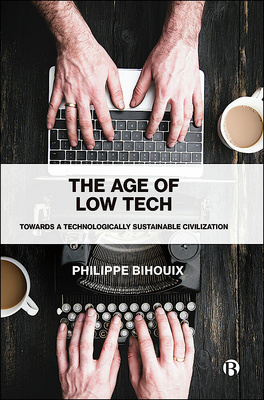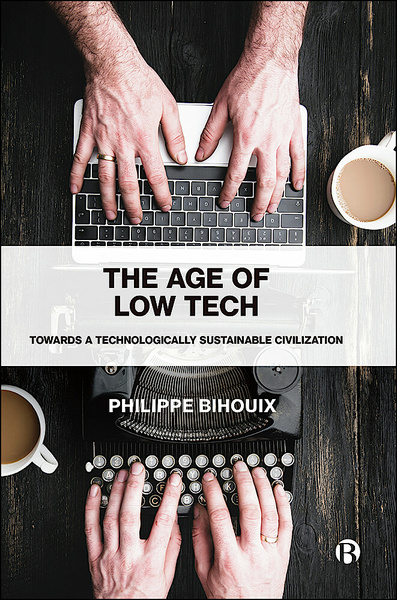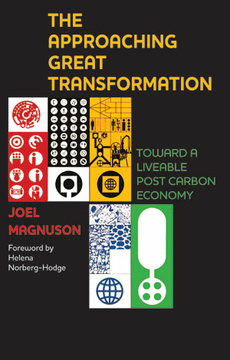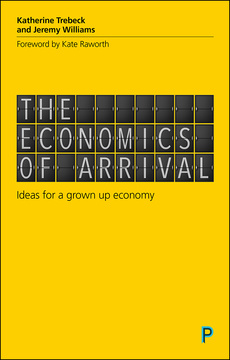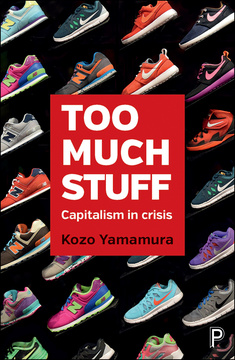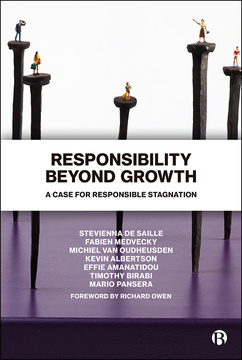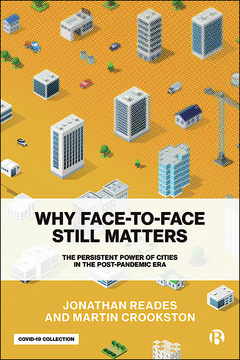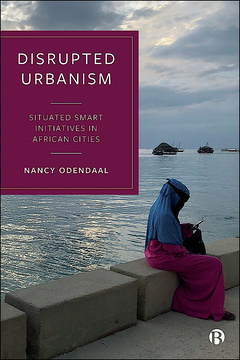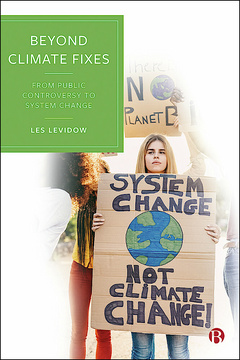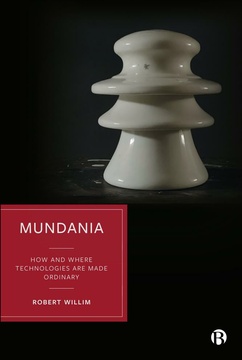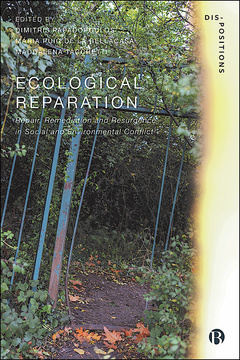Published
Oct 21, 2020Page count
198 pagesISBN
978-1529213270Dimensions
234 x 156 mmImprint
Bristol University PressPublished
Oct 21, 2020Page count
198 pagesISBN
978-1529213263Dimensions
234 x 156 mmImprint
Bristol University PressPublished
Oct 21, 2020Page count
198 pagesISBN
978-1529213287Imprint
Bristol University PressPublished
Oct 21, 2020Page count
198 pagesISBN
978-1529213287Imprint
Bristol University PressIn the media
On our blog: Shifting baselines and coping with planetary change
On our blog: Toward an age of low tech for a more resilient and sustainable society
'The Age of Low-Tech' in zprod
'The Age of Low-Tech' in Reflexions on Ethics & Inclusivity in STEM Education
People often believe that we can overcome the profound environmental and climate crises we face by smart systems, green innovations and more recycling. However, the quest for complex technological solutions, which rely on increasingly exotic and scarce materials, makes this unlikely.
A best-seller in France, this English language edition introduces readers to an alternative perspective on how we should be marshalling our resources to preserve the planet and secure our future. Bihouix skilfully goes against the grain to argue that ‘high’ technology will not solve global problems and envisages a different approach to build a more resilient and sustainable society.
"Every engineer needs to read this book; the world can’t transition without us having a clear perspective. " Susan Krumdieck, Heriot-Watt University
"This book brings to life the ideas of appropriate technology for our future – full of global threats and opportunities.” Ian Roderick, The Schumacher Institute
"There is no high-tech quick-fix against climate change. Technology can help us. But a much more responsible behavior in consumption and production is the most important. A new civilization!" Mogens Lykketoft, Former President of the United Nations General Assembly
"Without low tech, the fight against climate change, resource depletion, and species extinctions may fail. Philippe Bihouix provides evidence and argument from a range of industries and disciplines, and handles it with intelligence, ease, and humour." Richard Heinberg, Post Carbon Institute
"A courageous book that challenges some dominant discourses about how to transition to sustainability, questioning the degree to which ‘green growth’ and ‘high tech’ can offer viable solutions." Karen Bell, University of the West of England
“Crystal clear in its message, analyses many new technologies and explains the difficulties for an effective recycling of their components … rigorous, fun and easy to read.” Antonio Valero, author of Thanatia: The destiny of Earth Mineral Resources
“Provides us with ideas on how to be prepared for a future that depends on a problem caused by the squandering in a few centuries of mineral resources accumulated over billions of years. Bihouix highlights how we can maintain civilization if we are more careful with how we use and recycle those resources. “ Ugo Bardi, University of Florence
“Technology will not get humanity out of the situation it is putting itself in: Bihouix offers an important yet imperfect critique of techno-optimism as well as offering a vision of a future that is worth looking forward to. I wish I had written it.” Steve Evans, Institute for Manufacturing, University of Cambridge
"A smart sideways look at where we are and what we call progress." The Earthbound Report
“Bihouix has written lightly and warmly about a topic that could otherwise paralyse us in fear and despair… The English translation by Chris McMahon is very welcome indeed.” Feasta
“The Age of Low Tech is a funny, informal, practical, angry, and subtly deep book….It reads like a recollection from a casual discussion with a fierce but jaded mind.” Resilience
Philippe Bihouix is an independent author and engineer. He worked for 25 years in various industrial sectors including construction, energy, chemicals, transport, telecommunications and aerospace, in Europe and Africa.
He is a member of the Institut Momentum, a French think-tank on the Anthropocene, ecological overshoot and transition.
Prologue ~ The mad dance of the shrimps;
Part I ~ The rise and fall of ‘engineering miracle-workers’;
Part II ~ The principles of simple technologies;
Part III ~ Daily life in the era of simple technologies;
Part IV ~ Is ‘transition’ possible?;
Epilogue ~ A dream if there ever was one.







